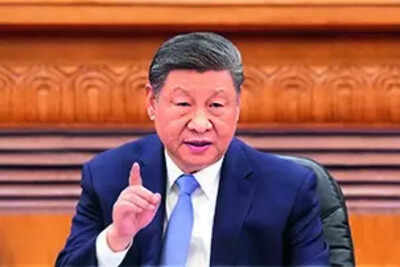Outwardly, China’s military has never been stronger. Its naval ships venture farther across the oceans. Its nuclear force grows by about 100 warheads every year. Its military flights around Taiwan are increasingly frequent and intimidating. Internally, though, China’s military is experiencing its most serious leadership disarray in years. Three of the seven seats on the Central Military Commission – the Communist Party council that controls the armed forces – appear to be vacant after members were arrested or simply disappeared.That internal turbulence is testing President Xi Jinping‘s effort, going back more than a decade, to build a military that is loyal, modern, combat-ready and fully under his control. Xi has set a 2027 target for modernizing the People’s Liberation Army, or PLA, and also – according to some US officials – for gaining the ability to invade Taiwan, which Beijing claims as its territory.The current wave of investigations and removals has reached some commanders hand-picked by Xi, suggesting recurrent problems in a system that he has tried for years to clean up. In the first years after Xi came to power in 2012, he launched an intense campaign to clean up corruption in the military. “When Xi Jinping sees his own men making mistakes, he is likely to be especially furious,” Joseph Torigian, an associate professor at American University who has studied Chinese leaders’ relations with the military, said of Xi. “Control over the military is so existential. That’s why any sense of stepping out of line has to be severely crushed.”The most jarring absence in the military leadership is that of General He Weidong. The second most-senior career officer on the Central Military Commission, He has disappeared from official public events and mentions – an unexplained absence that suggests he, too, is in trouble and may be under investigation. Another top commander, Admiral Miao Hua, who oversaw political work in the military, was placed under investigation last year for unspecified “serious violations of discipline,” a phrase that often refers to corruption or disloyalty. He was among around two dozen, if not more, senior PLA officers in the armaments industry who have been investigated since 2023, according to a tally by the Jamestown Foundation.While Chinese officials are vulnerable to probe for corruption or disloyalty even in the best of times, for him to lose them both reveals an uncommon degree of top-level upheaval. Xi’s fears for the military come from questions of battlefield preparedness, and anxieties that commanders could drift away from loyalty. Xi may seek a fourth term as leader of the Communist Party in 2027, and he will need to replace purged commanders with a new cohort whose devotion to him is beyond question.







